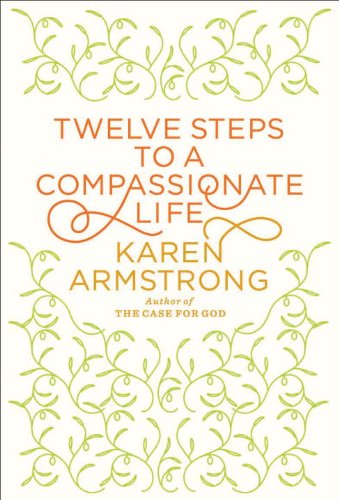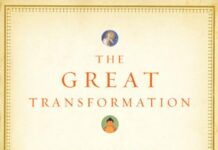
Ebook Info
- Published: 2010
- Number of pages: 242 pages
- Format: EPUB
- File Size: 1.83 MB
- Authors: Karen Armstrong
Description
Karen Armstrong explains how to practise the religion of compassion that her last books have preached.In November 2009 Armstrong and TED launched The Charter of Compassion, which states that “We call upon all men and women to restore compassion to the centre of morality and religion…to cultivate an informed empathy with the suffering of all human beings — even those regarded as enemies.” To date, it’s been signed by over 48,000 people on the Web, including such figures as The Dalai Lama and Queen Noor, Dave Eggers and Meg Ryan. (www.charterforcompassion.org) Out of the ideals of that Charter has come this humane, accessible, indispensable short book for our times.
User’s Reviews
Reviews from Amazon users which were colected at the time this book was published on the website:
⭐”We are what we repeatedly do. Excellence, then, is not an act but a habit,” said Aristotle some 300 years BCE. Karen Armstrong would add that a compassionate life is not a goal, or an achievement, but an ongoing spiritual practice. We need to make compassion a habit. And this practice, if it does not make perfect, at least will evolve us in a positive and much needed way.The renowned author of over twenty books on religions of the world has now produced a passionate call to compassion. We need to heed the wisdom of the ancient sages of a wide range of religious and secular thought and apply a compassionate life to the complex circumstances of our own modern circumstances.Ms. Armstrong’s `Wish for a Better World” expressed in her acceptance speech for her 2008 TED prize was that the leaders of the world’s religions draw up a Charter for Compassion that emphasized their shared core values of compassion and the Golden Rule. The resulting document, unveiled in 2009, is a jewel of concise wisdom compiled by a Council of Conscience from literally tens of thousands of submissions. Following the usual media dictum of `if it bleeds it leads’, traditional media have largely ignored this event. It has none-the-less been affirmed online by over 79,000 people. A half a dozen cities, starting with Seattle, have proclaimed themselves Compassionate Cities. Well over sixty cities and regions, including the entire country of Canada, are listed on the International Institute for Compassionate Cities web site as being in the process of this declaration. [NAIN was an early partner of the Charter.]The book is both scholarly and practical. Inspiration is drawn from a wide range of secular and spiritual sources – from Confucius and the Ancient Greeks to the Buddha and the Abrahamic prophets.Societal development tends to follow a paradigm of progression – Individual survival [Four F brain – feed, flee, fight, procreate], Evolving into societies – cooperate for survival of the group, 4 F brain joined with new brain reason = Violence from struggle for power, Revulsion from violence = spiritual changeAs humans develop a higher brain, the remnants of the Four F brain remain and may be evoked during power struggles, resulting in chaos and violence. Eventually, throughout history, repulsion to this violence has forced spiritual sages on a quest toward spiritual change.Our current world situation reflects the third stage where violence is evoked by appeals to the Four F brain. We have made vast progress in scientific exterior realities, but we have not as yet evolved many contemporary sages. “Many people today would rather be right than compassionate.”Ms. Armstrong suggests that we have a choice – emphasize aspects of religious and secular traditions that speak of hatred, exclusion, suspicion or work with those that stress interdependence and equality for all.She further upholds the value of mythos as used in all societies to teach universal realities. Mythos is not based on historic fact, but provides a kind of spiritual road map to to a higher consciousness. The hero mythos, eloquently described by Joseph Campbell, is exemplified by Buddha, Jesus, Muhammad, Gandhi in their quest for a larger truth and a more fully-realized self.The book outlines twelve steps towards the compassionate life which modern sages could use to heal the chaos of violence and power struggles. Compassion is definitely not painted as a fluffy, Pollyanna concept. Compassion is not pity, but the shared suffering of the other.The steps are not easy. They imply a lifetime of learning and discipline, not very popular tasks.Compassion for oneself is a necessary step. We live in a `me first’ society that is, however, rife with self-doubt, guilt, eating disorders, and other neuroses. It is impossible to offer compassion to others if you have not first been compassionate to yourself.Compassion requires a critical look at how much we do not know. A society which expresses opinions ad nauseum on talk shows does not often reflect on what it really knows about the other. We do not easily want to lose arguments, even if we do not know what we are talking about. We give lip service to interfaith dialog, but rarely know how to engage in real dialog, in which we might learn something and change a preconceived conception.The twelve steps guide us on an ever widening circle of others to whom we practice offering compassion. It means resolving the intricacies of our closest relationships. How often it is hard to be compassionate to our families, our friends, and our co-workers! Then, the twelfth step seems hardest of all – love your enemies!Indeed, a compassionate life might seem an impossible task. But Karen Armstrong encourages us to see the steps as an ongoing process. We must continually stretch ourselves to be more and more compassionate, while applying self-compassion when we fail. The wisdom of the sages is not an impossible aspiration. And, she urges, even if we only achieve a fraction of that enlightenment, we will have lived a more worthy life and left the world a little bit better.I believe this book expresses a powerful, if not easy, prescription for the ills of our modern, violent world.
⭐At a young age, we likely heard from our parents the importance of the Golden Rule–a maxim that we should treat others the way that we would want to be treated. In our polarized world today, however, we’ve failed to understand and to apply the Golden Rule, says Karen Armstrong in her Twelve Steps to a Compassionate Life. A reader of Armstrong’s works for the past ten years, this latest installment differs in that it provides us with practical steps that anyone can embrace toward becoming a person of compassion.Known primarily as a scholar of religious history, Armstrong incorporates evolutionary science in her first step Learn About Compassion to support her position that compassion is wired in the brain as much as the 4 Fs–Food, Fight, Flight, and reproduction–are. Armstrong builds upon “the two brains” concept throughout the remaining eleven steps as a way to gauge our own progress toward a compassionate life but also to ground our thoughts, behaviors, and failings in scientific fact. Bringing evolution into the religious arena may be too much for some to swallow; however, Armstrong is fair-minded when recommending that we review our own faith tradition as we progress through the twelve steps.The other eleven steps–Look at Your Own World, Compassion for Yourself, Empathy, Mindfulness, Action, How Little We Know, How Should We Speak to One Another?, Concern for Everybody, Knowledge, Recognition, and Love Your Enemies–are organized from examining ourselves, to learning how to be compassionate with people around us, to enacting compassion in the world. There is a predictable pattern to each chapter. Armstrong provides an anecdote that demonstrates the step, follows it up with examples of how spiritual leaders of the past have approached it, and then ends with related questions and advice for us to accomplish the step.A skeptic may look upon these as nothing more than failed idealistic virtues, but, as Armstrong points out, becoming compassionate takes rigorous work up until our final moments of life. In other words, as the twelve steps for an alcoholic can be demanding, so too are these twelve. If we are truly committed to living a compassionate life, then we must be willing to dedicate ourselves the same way the sages of the Axial did during violent and destructive times.I will not do an exhaustive review of each step because that would take too long and would be a mistake on my part for attempting to impose myself on your interior space. However, the eighth step How Should We Speak to One Another? and the tenth step Knowledge speak volumes about the polarization we now encounter in the world around us. One unfortunate trend today is the attack and counterattack model, where, for example, “experts” appear on popular cable channels not only to present their position but to annihilate and humiliate the opposing viewpoint.Instead of resolving anything, all that is stirred is our emotions, and, as a result, we watch the next episode hoping to hear how the expert from “our side” will belittle the opponent. If we truly want ourselves, our country, and our world to live according to the Golden Rule, this type of rancorous speech must end. What should that mean for us? According to Armstrong, a compassionate person must admit that we do not know everything (in fact, very little) and that we must be willing to listen to our enemies with an open mind and heart. Unfortunately, we are so used to fighting our opponents and then fleeing to a channel that supports our views that we never cross over into a realm of possibility.A little over two hundred pages, Twelve Steps is probably one of Armstrong’s shortest books, but because it is, I will return to it periodically as I work through each step. If you read this book in a day or two and then shelve it, then likely you’ve missed the point. This is a book calling all of us to action, and if you believe in a more compassionate world, then this book is a great resource for you to begin that important journey.
⭐As an armchair person interested in religion and spirituality, I have read and enjoyed many though not all of Karen’s books. Usually her book are not for the faint of heart. The reading often is heavy going but rewarding. This book is different. Karen pulls from the heart of the matter in several different spiritual traditions to illuminate something they all have in common: compassion. What is even more surprising in that Karen gives the reader techniques to access compassion to put into practice what she preaches. When I first read the book, I found it disquieting that the each chapter got shorter and shorter and seemed more repetitive. Upon reflection and reading the book a second time, I realized that each chapter lays the foundation for subsequent chapters and that there are subtle changes in points of view as the practice of compassion is expanded outward. This book is more invitation to act than knowledge to put in one’s head like Karen’s other books. Nonetheless Karen does not shrink from the hard questions and hard work. This is a book I will read many more times and expect to get something each time. I have decided to join the men’s group which is discussing this book. I first heard about the book in the announcement about the men’s group. I should hasten to add that this is a book for everyone. I have also decided to join the Charter for Compassion group founded by Karen.
⭐A VPB (very important book) in my opinion. Armstong’s summary of the workings of the primitive brain, and how it so easily takes us away from anything resembling compassion, is masterful and worth the price of the book alone. I love the way she puts mindfulness (something of a plague at the moment!) into its proper historical and spiritual context, where is does not remain an end in itself, but instead a means to becoming more compassionate. Since reading this, I’ve joined Armstong’s Compassionate Movement (details easily found on google) and wear a ‘Compassionate It!’ wristband to keep the concept in mind during the day.Developing compassion is a life-long struggle for us all I think: at the current time, with refugees from Syria pouring into Europe, ‘primitive brain’ thinking – terrirotrial, me-first, fear-based – really can take over. It takes effort and courage to be compassionate – to ‘do to others what you would want them to do for you’. So the book is challenging, but compassionate towards the reader too.Highly recommended.
⭐Extremely thought provoking and discursive. Good basis for our group discussion. Annoying not to have page number references when working with a group mostly using hard copies. It made tracking arguments tricky at times… Hence one star down.Highly topical content for the world of today in general, and UK in particular as we all face the massive migration phenomenon of Africa and the Middle East to Europe. Understanding, tolerance, unconditional acceptance of each other as fellow human beings is so essential. And this must travel alongside an acceptance of the finite nature of our wonderful planet making compassion not just an add on but fundamental to our continuing existence. Also leading to a new movement with an opportunity to express compassion in more practical ways with like minded, similarly enlightened people.
⭐”This book will change your life” is a well-worn cliché which often graces the front cover of the kinds of self-help books which prove so popular around this time of New Year’s resolutions. In the case of Karen Armstrong’s book, I would argue that this is not only true, but had better be, for all our sakes, and that while the twelve steps will not change you overnight, they will set you off on a fascinating journey which in itself is a transcendent experience.At the heart of the book, as with Armstrong’s other work, The Case for God, lies a quest to rediscover the roots of religion in compassionate action rather than in accepting doctrinal beliefs. Armstrong’s eclectic scholarship helps us to understand that, far from being the static, final and definitive word about the ultimate nature of spiritual reality, all religions have undergone a historical evolution.One of the most powerful and striking phenomena in the development of life on Earth has been convergent evolution, where organisms from distinct groups have ended up remarkably similar due to having become adapted to the same kind of habitat. Out of numerous examples, the classic one for me has always been the shark, the dolphin and extinct ichthyosaur. Despite coming from the fish, mammal and reptile families respectively, they all show remarkable similarities in form due to having taken up a predatory marine mode of life.There has been a similar convergence in the cultural evolution of the world’s religious and wisdom traditions, all of which have arrived at a version of the Golden Rule, first stated by Confucius in the 5th century BCE as, “Never do to others what you would not like them to do to you”, sometimes repeated in its positive form, as in St Luke’s Gospel, as “Do to others as you would like them to do to you.” The sages who developed this understanding independently of each other did so in response to the rampant selfishness and mounting violence they saw around them during the turbulent times of upheaval in which they lived, whatever the particular culture they belonged to. These were not mountain-top revelations, too lofty and idealistic to apply to the grubby, pragmatic world of commerce and politics and the inequalities they inevitably create, but a serious attempt to grapple with the reality of that urban world of rapid transformation.The Golden Rule forms the cornerstone of this book and the subsequent Charter for Compassion, which Armstrong initiated to bring together people from all traditions to bring compassion back to centre stage in our interconnected and yet bitterly torn world, where atavistic hatreds and the plundering of the Earth’s resources now threaten all our futures.The book takes a step-by-step approach, consciously modelled on the Alcoholics Anonymous programme, except that in this case the aim is to help us get over our addiction to our ego, with its need for dogmatic certainty, and the kinds of negative behaviour this can lead to. Starting with ourselves, we are encouraged to contemplate our own internal spiritual landscape, recognising our positive qualities as well as having compassion for ourselves, recognising that many of the less savoury aspects of our character spring from the deep-rooted instinctual drives we have inherited from our reptilian ancestors. We are then taken on a tour throughout history in the company of some of humanity’s finest guides to help us gradually expand our sphere of compassion via our family, nation, other cultures of which we often know next to nothing, and leading to the ultimate chapter, which takes up Jesus’s theme of “Love Your Enemies”.Both sides of the debate currently raging between ‘new’ atheists and traditionalist and fundamentalist believers would benefit from reading this book, which resounds with the words and actions of the great spiritual pioneers of humanity, including Confucius, Buddha, Socrates, Jesus and Muhammad. Armstrong argues that we have to dig back down to the roots of all our faiths and traditions to rediscover the central message that religion is something you only ‘get’ through showing compassion and displaying commitment to this principle through daily practice, rather than saying, “OK, I believe that certain things are true, even when there is no actual direct evidence to back them up, so now I am a believer”.Modern technology has given us unprecedented access to the accumulated spiritual and philosophical wisdom of the world and the radical, countercultural call for compassion it contains. All the great sages featured in the book lived through times of upheaval and extraordinary violence, like ourselves, except that, for the first time, that same technology has brought us the dubious distinction of bringing the world to the brink of global catastrophe through its selfish and thoughtless misapplication.Never before has there been a more pressing need to rediscover the compassionate roots of our various traditions, and to harness our technological know-how to connect with each other and create a global ethos of compassion. This is exactly what Karen Armstrong has gone on to promote through the Charter for Compassion, which has attracted support from all major faith traditions: a remarkable initiative in these fractured and often dangerous times.What better way to start 2016 than with a New Year’s resolution to read this book and start your own journey, with the aim of nurturing your own compassion, in the words of Confucius, “all day and every day.”
⭐Like all her books there has been a great deal of research and there are many interesting quotes to support her statements. For those who read a lot of this genre there was little that was unknown but it does emphasise the need, which has been there from the beginning of time, for humans to love each other as they love themselves. It also emphasises this common element in all major religions and exhorts the reader to reconsider his prejudices. Maybe there could have been brief summaries at the end of chapters.
⭐Twelve Steps to Compassion, uncomplicated read written from an unbiased perspective with contributions from diversity of faiths. Wealth of information for present times allowing deeper understanding of how the system works, suggestions in compassion as to how to meet with it in ones daily life.
Keywords
Free Download Twelve Steps to a Compassionate Life in EPUB format
Twelve Steps to a Compassionate Life EPUB Free Download
Download Twelve Steps to a Compassionate Life 2010 EPUB Free
Twelve Steps to a Compassionate Life 2010 EPUB Free Download
Download Twelve Steps to a Compassionate Life EPUB
Free Download Ebook Twelve Steps to a Compassionate Life




